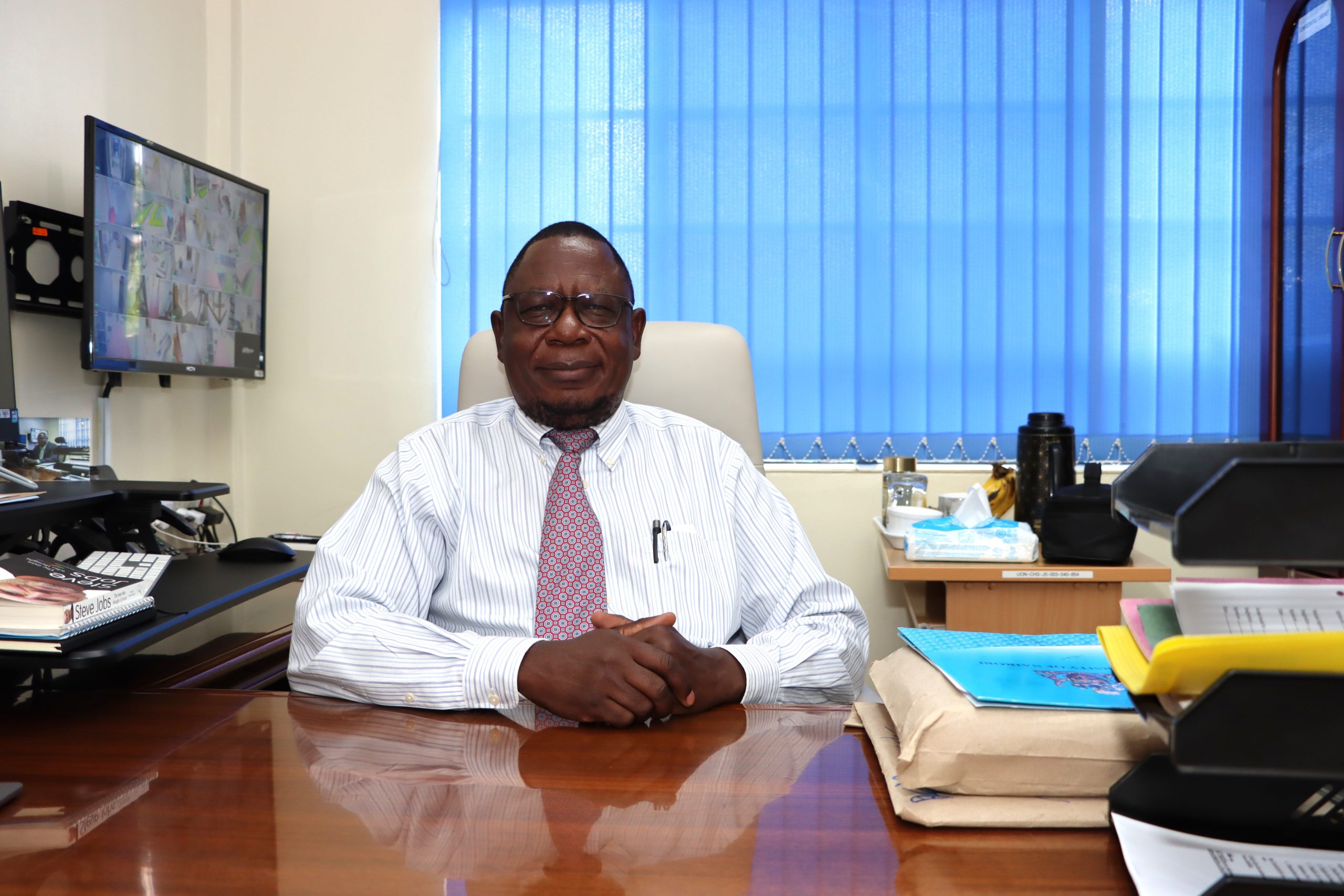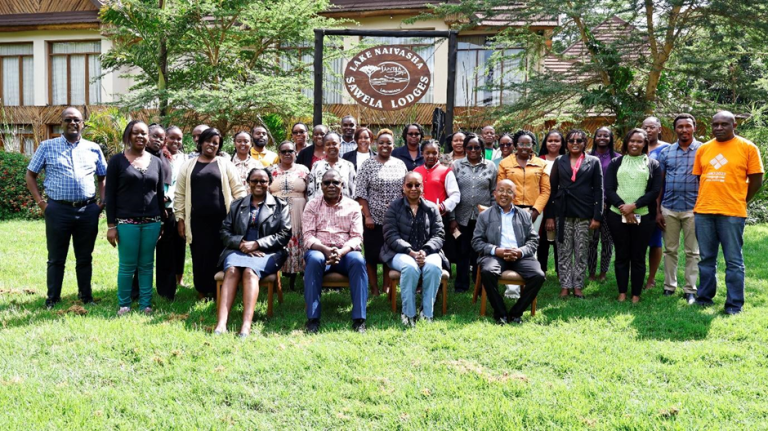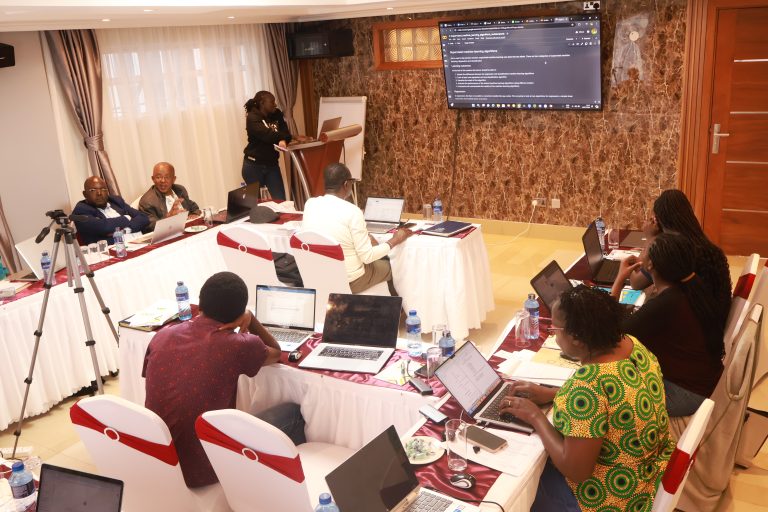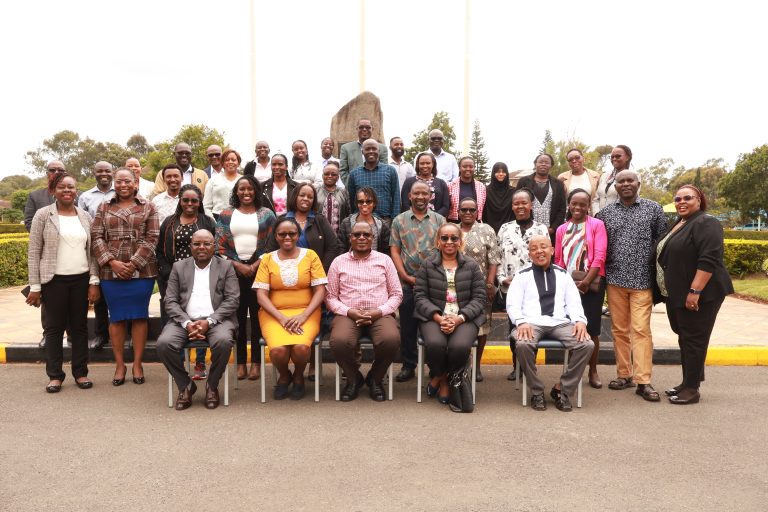By Professor Julius Oyugi – Published in the Standard Newspaper
To truly feel what it’s like to be in someone else’s shoes, sometimes you have to walk in them. As a Professor at the University of Nairobi Institute of Tropical and Infectious Diseases (UNITID), I often rely on data to provide evidence that leads to better health outcomes as far as infectious diseases is concerned. From my experience, the best insights often come from lived experiences.
That’s why I spoke to Veronica, a former trainee of our ENGAGE (ENabling Girls in AI and Growing Expertise) program, who now interns near my office. Her experience gave me an authentic picture of the program’s real-world impact. First, let me give you a background on ENGAGE.
ENGAGE trains young women in Data Science, Artificial Intelligence, and Machine Learning to tackle public health challenges. After training, they are placed in six-week internships at community health organizations where they work with data on malaria, tuberculosis, depression, and more.
As Veronica explained to me, data tells stories. It reveals what needs urgent attention, which interventions are effective and how these insights can significantly improve turnaround times. With this in mind, and depending on the outcome of their data analysis, our trainees present their findings to hospital leadership, whose strategic decisions are informed by data.
That said, for data to drive change, it must be of high quality. It ought to be complete, accurate, and consistent. Communities must now understand why their information matters. When collected ethically and used wisely, data helps detect outbreaks early. As public health professionals, we can now see disease trends before major outbreaks which could lead to pandemics. This turns data into a tool that enables preventive care to become a reality, creating more responsive, community-centered healthcare.
This is precisely why we link trainees with community health organizations. These centers are lifelines. AI and machine learning can lighten staff workload, optimize resource use, and improve community care. For these tools to succeed, it has to start with awareness: AI is not here to replace anyone. It’s here to support systems that constantly need to be optimized.
“With the right data, I can detect patterns in ten minutes,” Veronica tells me zealously. This is the kind of swift, informed, community-driven impact we are building. Even better, our graduates return to serve the very communities they come from. They understand local challenges firsthand and are deeply intent on finding solutions to them.
From this, you can tell that one of the concepts that the ENGAGE project was built on was challenging how we think about AI, who can use it, and how we can use it to empower the most deserving populations. In any case, Artificial Intelligence is already transforming sectors like the military, agriculture, finance, and education. So why not use it to help reduce disease burdens in our communities?
Ultimately, while machines can guide us, humans must still decide. Critical thinking, empathy, and innovation remain essential. We must reimagine public health, starting with creating space for data scientists in healthcare systems.
If COVID-19 taught us anything, it’s that data saves lives. Now, it must also improve health outcomes in our communities. It’s time to reimagine public health: a vital pillar of any nation’s well-being and productivity.
Professor Julius Oyugi is the Director of the University of Nairobi Institute Of Tropical and Infectious Diseases (UNITID) and the Principal Investigator, ENGAGE Project.




